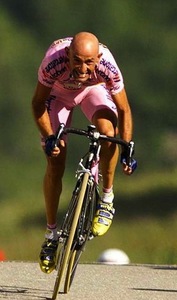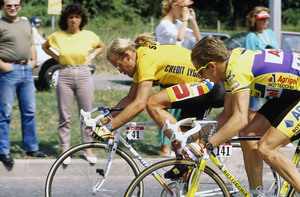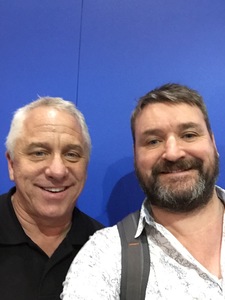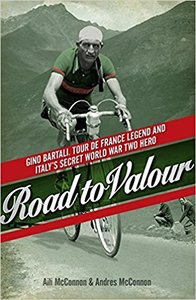I’d been sitting on some book tokens for a while and finally got around to spending them not long ago, buying quite a few cycling related books.
Although not my normal reading fare, I love to read books about cyclists, cycling events & endeavours and have thoroughly enjoyed quite a few I’ve read over the past few years.
Tim Moore’s “Gironimo!” & “French Revolutions” about his own attempts at the Giro & Tour de France are both highly enjoyable reads, as are Edward Enfield’s “Greece on my Wheels” and “Downhill All The Way“.
When it comes to books about cyclists, sadly many about (or by) more recent cyclists are often focussed on drug taking in the peloton (and in particular one person) – it’s obviously a popular topic, but in many cases once you’ve read one you’ve pretty much got the gist of many of the others. One exception is David Millar’s “Racing Through The Dark“, which gives a fascinating insight into his own almost inevitable descent into the murky world that professional cycling had become.
Speaking of which, I have read some of the books about the twatwaffle, but to be honest they just make me angry about what an obnoxious sh1t he was and how he used his position of power & influence to shout down/ostracise those (such as Greg Lemond) who would point out that things looked amiss (a familiar pattern sadly followed by certain people and their supporters in the political sphere currently 😠 ).

However, it’s books about some of the cycling legends that I seem to enjoy most.
For someone who loved the swashbuckling attacks of “Il Pirata”, Matt Rendell’s book “The Death of Marco Pantani” is a great read (also the movie on the same subject “Pantani: The Accidental Death of a Cyclist“) , but it’s incredibly sad that someone with such talent was so insecure and ultimately had such a terrible end.
Two of my all time favourite sporting memories involve Greg Lemond – the summit finish at Alpe d’Huez in the 1986 Tour de France with Bernard Hinault and of course the 8 second victory over Laurent Fignon in the 1989 Tour de France – and so obvious subjects to read about. Surprisingly, I’ve had Richard Moore’s “Slaying the Badger” about the ’86 Tour for a while now but I’ve never read it – my excuse being that I’ve watched the film instead. I’ll get there eventually (the film of the book is very good).
 I’ve previously read & enjoyed Fignon’s autobiography “We Were Young And Carefree” which obviously had his own view on the ’89 Tour and so one of my purchases was Nige Tassell’s “Three Weeks, Eight Seconds: The Epic Tour De France of 1989” which gives a day by day account through the tour up to that final day time trial – from some of the reviews I’ve read online, it’s not everyone’s cup of tea, but I enjoyed it.
I’ve previously read & enjoyed Fignon’s autobiography “We Were Young And Carefree” which obviously had his own view on the ’89 Tour and so one of my purchases was Nige Tassell’s “Three Weeks, Eight Seconds: The Epic Tour De France of 1989” which gives a day by day account through the tour up to that final day time trial – from some of the reviews I’ve read online, it’s not everyone’s cup of tea, but I enjoyed it.
It’s sad to read – in both books – how deeply affected Fignon was by that minuscule defeat on the Champs-Élysées and how it was like a millstone to him for the rest of his life, often feeling / believing that he was viewed as the person who lost Le Tour by 8 seconds and not someone who had won it twice and came oh so close to winning it a 3rd time 😔.

I had the pleasure of meeting Greg Lemond a few years back at The Cycle Show in London and was fascinating to hear him talking about his life in & out of cycling – including the high of crossing the summit of Alpe d’Huez with Hinault to be swiftly followed by the low of Hinault’s press conference later.
And it was great to see him back involved in cycling after being persona non grata for several years after daring to speak out about the drug taking.
Some people are aging better than others despite still having those lead pellets in the wall of his heart…
Personally, I love to read a book which is set somewhere I know or – even better – somewhere I’m actually visiting while reading the book.
For example, there was something about the extra context I got when sitting in a small Greek village reading Edward Enfield talking about his cycling journey into that village in “Greece on my Wheels” and I’m currently enjoying Iain McGregor’s “To Hell on a Bike: Riding Paris-Roubaix: The Toughest Race in Cycling“, Paris-Roubaix being my favourite race and my daughter having lived near Roubaix last year (I’d mentioned this later to one of the “old-timers” at my cycling club and he chided me for not saying beforehand – “we could have organised a lad’s weekend” 😀).

My recent trip to Tuscany for L’Eroica was therefore the perfect situation to read Aili & Andres McConnon’s “Road To Valour” about Italian cycling legend Gino Bartali as we would be travelling around Bartali’s home turf from the streets of Florence through the Tuscan countryside. It is a fascinating read of Bartali’s life, not just the cycling, his rivalry with Fausto Coppi, but also the rise of Fascism in Italy and Bartali’s secret actions in the Second World War to help save hundreds of Jews by cycling many hundreds of kilometres between Florence, Lucca, Genoa, Assisi, Rome with secret documents and falsified identity papers hidden in his bike frame. Bartali kept these activities so secret that he only told his son later in life because – I’m paraphrasing – it was about them, not him. In 2013, Yad Vashem (the Holocaust memorial) recognised Gino Bartali as Righteous Among the Nations for his activities.
Update: If reading a book is too much for you, there is now a short article on the BBC web site – Gino Bartali: How a cyclist’s key work saved lives
There is also a film covering this same subject “My Italian Secret“, which the Bike channel (now defunct) had been showing – I’d recorded it a while back, but wanted to read the book first – and it includes old archive films and interviews with some of those who had been saved by the bravery of those Italians (including Bartali).
I thoroughly enjoyed both the book & the film – and the fact that Bartali’s grumpiness & sharp tongue earned him the nickname Ginettaccio (Gino the Terrible) gives me a certain feeling of affinity for that brave, sadly departed, grumpy old man.